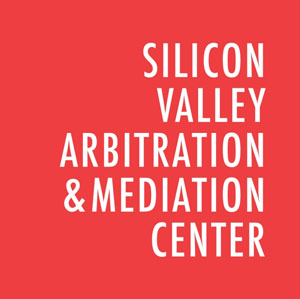Silicon Valley Arbitration and Mediation Center
Smarter, Faster, Cheaper Technology Dispute Resolution Conference
Open Forum with Silicon Valley – September 16, 2016
FIVE KEY LESSONS LEARNED ON INTERNATIONAL TECH DISPUTES:
1. Court Judgments Are Not Valid in Foreign Countries – But Arbitration Awards Are Globally Enforceable
Litigation: Assume the winning party in a litigation needs to enforce the court’s decision in the jurisdiction of the losing party. In most jurisdictions it’s time to start all over again to try the case in a jurisdiction where the winning party may well have determined not to litigate in the first place. So, relying on litigation can mean frustration for the winner, delay of enforcement, and considerable added expense by using litigation.
Arbitration: In international arbitration, thanks to the New York Convention, in which more than 150 countries are signatories, the courts in the home of the arbitration’s loser are obligated to enforce the decision of the arbitration. The enforcement may be reviewed in a few instances including a public policy objection determined by the enforcing jurisdiction. The enforcement obligation under the convention has been extremely effective.
2. International Arbitration Allows for Neutral, Flexible, Final and Private Decisionmaking
Other advantages of cross border arbitration include choice of a neutral forum to settle a dispute, ability of parties to choose flexible procedures for the dispute resolution, the finality of arbitration awards in that they are not often subject to appeal barring egregious acts by arbitrator(s), and, finally, the important factor of confidentiality/privacy.
3. In-house Counsel Have a Critical Role to Play in Arbitration
In arbitration, inside counsel should spend considerable time to select the arbitrator or arbitrators who will make the final determination of the case and continue involvement in the selection process when party appointed arbitrators have to select chair. Oversight by in-house Counsel can be critical in controlling costs and time of the arbitration.
4. Quality Arbitral Institutions Should Administer Cases
Arbitral institutions can play an important administration role in a case, particularly in complicated cases when there are issues over arbitrator selection, jurisdiction and collection of arbitrator fees. Some of the better arbitral institutions have rules particularly suited for technology disputes.
5. Drafting the Right Arbitration Clause Language is Important.
Too often the language in the agreement’s arbitration clause is a last minute choice.: at the final hour just before the agreement is finalized, a form from an old agreement is chosen by lawyers. It is essential that counsel customize the arbitration clause to fit the particular situation. Take the time to make this clause work in your best interest. As an example the American Arbitration Association has examples of specialized clauses which may be found at https://www.adr.org/aaa/ShowPDF?doc=ADRSTG_002540. As well, it is often useful to add a “confidentiality” provision to standard clauses.
